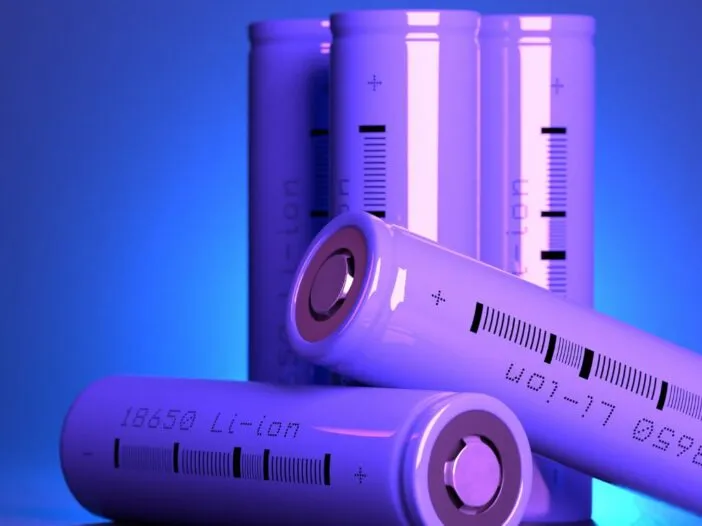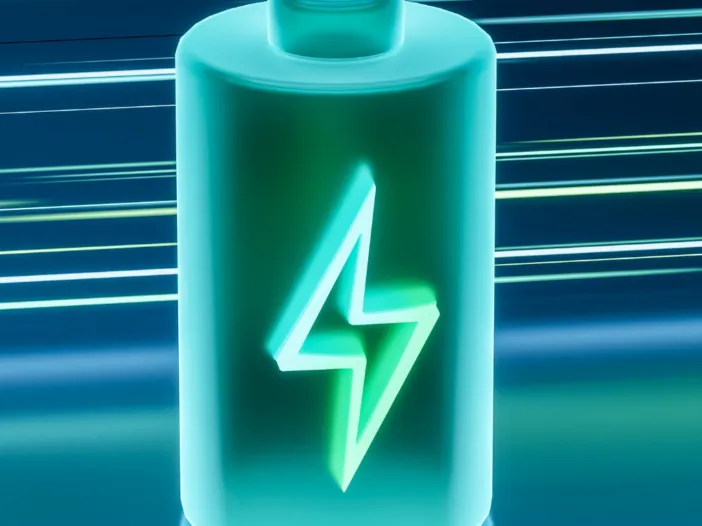Lithium-ion battery safety courses
Our lithium-ion battery safety courses help ensure employees know how to handle, store, and dispose of batteries safely to mitigate the risks of fire, explosion, chemical exposure, and electrical hazards. Training helps employees to prevent accidents that can lead to serious injuries, property damage and environmental harm.

Training For Your Team
Complete the form below to discuss
multi-licence discounts with our team.
Lithium-ion battery safety facts and figures
Lithium-ion statistics to keep you in the know.
270
Ebike fires reported in 2023
118
Electric car fires in 2023
60
Injuries from ebike fires in London alone in 2023
Lithium-ion battery safety courses
Ensure employees are aware of the risks associated with lithium-ion batteries, how to mitigate risks, and what to do in an emergency.

Lithium-ion battery safety training
Our lithium-ion battery safety training raises awareness of the safety hazards associated with lithium-ion batteries, how to reduce the risk of thermal runaway, and what to do in an emergency.

Managing lithium-ion batteries
Managing lithium-ion batteries is an essential, in-depth course that supports senior staff to reduce the risks of battery fires and comply with UK regulations & standards.

Benefits of lithium-ion battery safety training
Enhanced safety
Lithium-ion battery safety training reduces the risk of accidents such as fires, explosions, and chemical exposure, ensuring a safer environment for individuals handling or working with lithium-ion batteries.
Regulatory compliance
Our comprehensive training helps to ensure adherence to safety regulations and standards to prevent fires and ensure compliance with health and safety guidelines.
Emergency preparedness
Participants gain critical skills in emergency response enabling them to effectively manage incidents involving lithium-ion batteries and minimise harm.
Operational efficiency
Proper handling and maintenance practices learned during training can extend the lifespan of batteries, reduce downtime due to accidents or equipment failure, and promote more efficient and cost-effective operations.
Lithium-ion Batteries FAQs
Why is lithium ion the best battery?
Lithium-ion batteries have high energy density, so they can store more energy in a compact size, making them ideal for portable electronics and electric vehicles. Lithium-ion batteries have relatively low self-discharge rates and can deliver high power output, providing efficient and reliable energy storage.
They also have a long cycle life, meaning they can be recharged many times before their performance significantly degrades.
What is the biggest problem with lithium-ion batteries?
Lithium-ion batteries are generally safe when used and handled correctly, thanks to built-in safety features like thermal controls and protective circuits.
Their biggest problem is the risk of overheating and catching fire, known as thermal runaway, which can occur if the battery is damaged, overcharged, or exposed to high temperatures.
What is the normal life of a lithium-ion battery?
Lithium-ion batteries typically last between 2 to 5 years or 300 to 1,000 charge cycles, depending on the specific battery type, usage patterns, and environmental factors.
High-quality batteries used in premium electronics and electric vehicles may last longer due to advanced cell technology and better thermal management systems.
Which lithium-ion battery is safest?
Lithium Iron Phosphate (LiFePO4) batteries, which are used in electric cars, are considered the safest types of lithium-ion batteries due to their stable chemical structure, which makes them less prone to overheating, thermal runaway, or catching fire compared to other lithium-ion chemistries. They also have a longer cycle life and can tolerate higher temperatures.
Can all lithium-ion batteries be recharged?
All lithium-ion batteries are designed to be rechargeable. However, like all rechargeable batteries, their capacity to hold a charge diminishes over time with repeated charging and discharging cycles.
Proper care, such as avoiding overcharging and deep discharging, can help extend their lifespan.
Where does lithium-ion come from?
Lithium for lithium-ion batteries is primarily extracted from mineral ores and brine deposits. Major sources include lithium-rich minerals like spodumene, found in hard rock deposits, and brine deposits located in salt flats or saltwater lakes, such as those in the “Lithium Triangle” of Argentina, Bolivia, and Chile.
Lithium can also be extracted from certain clay deposits and is increasingly being recovered through recycling of used batteries to meet growing demand.
Related resources
Learn more about lithium-ion battery safety with our free guides, podcasts and webinars.
Lithium-ion battery safety training – Download course information
